SETTING INVESTMENT STANDARDS OF THE FUTURE, TODAY


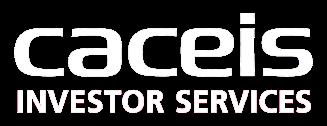







The global asset management and investment sector is an indispensable component of the world’s economic footprint, making it integral that the industry is accurately assessed and monitored to maintain a financial equilibrium
Writer: Lucy Pilgrim | Project Manager: Ben WeaverThe scope of international asset management and foreign direct investment (FDI) has become increasingly significant in the global financial sphere in the past 20 years. The majority of this growth is stimulated by rising demand in the extension of mutual and private funds, in the face of ever-changing financial conditions which have subsequently heightened the need for investment guidance.
The beginnings of the investment and asset management industry first emerged in the 18th century, due to an increase in organised borrowing activity. Therefore, through the support of national banks and governments across Europe, savings products such as life insurance and pension funds began to conceptualise towards the end of the century.
Today, with nearly 5,000 fund and asset management companies operating in Europe, the continent is a financial hub for global banking operatives. This is conducive to the overall efforts of the European financial services industry, which has endeavoured to build a stable and informative environment for international investors, facilitated through easy access to trustworthy information and advice.

Within the context of the investment fund industry, the main function of the investment promotion sector, and investment promotion agents (IPAs) more specifically, is to create an investment promotion strategy (IPS) for a particular region. This is achieved by a clear understanding of the socio-political and economic landscape of the given country, as well as knowledge of the nation’s international economic policy in order to navigate and encourage FDI.
An IPS exists as a balance between a country’s business competitiveness and attractiveness as a location, alongside the intentions of the international investor. Therefore, great care and precision is taken when formulating an IPS, as it must correlate with certain political, economic, and environmental criteria. Therefore, this highlights a need for accurate representation and guidance, whilst showcasing the given region’s investment opportunities on the world stage.
As key support for the Luxembourg fund industry, Director General Camille Thommes tells us how ALFI bolsters the sector to be properly equipped to serve the domestic market and international clients. In the context of constant transformation in the financial industry, ALFI provides major support to the country’s investment fund sector, positioned as the face and voice of the country’s investment promotion activities
EME Outlook (EO): Firstly, can you talk us through the origins of ALFI, including how it was established and the initial vision?
Camille Thommes, Director General (CT): ALFI began in 1988 when Luxembourg was the only country to have implemented the first European investment fund directive (UCITS1). The feeling at the time was to create a dedicated association that could promote and represent the Luxembourg investment fund industry.
EO: Since inception, how has ALFI progressed in terms of its key objectives and the messages it tries to get across?
CT: As we celebrate our 35th anniversary this year, we have come to represent approximately 1,500 investment funds, asset management companies, and service
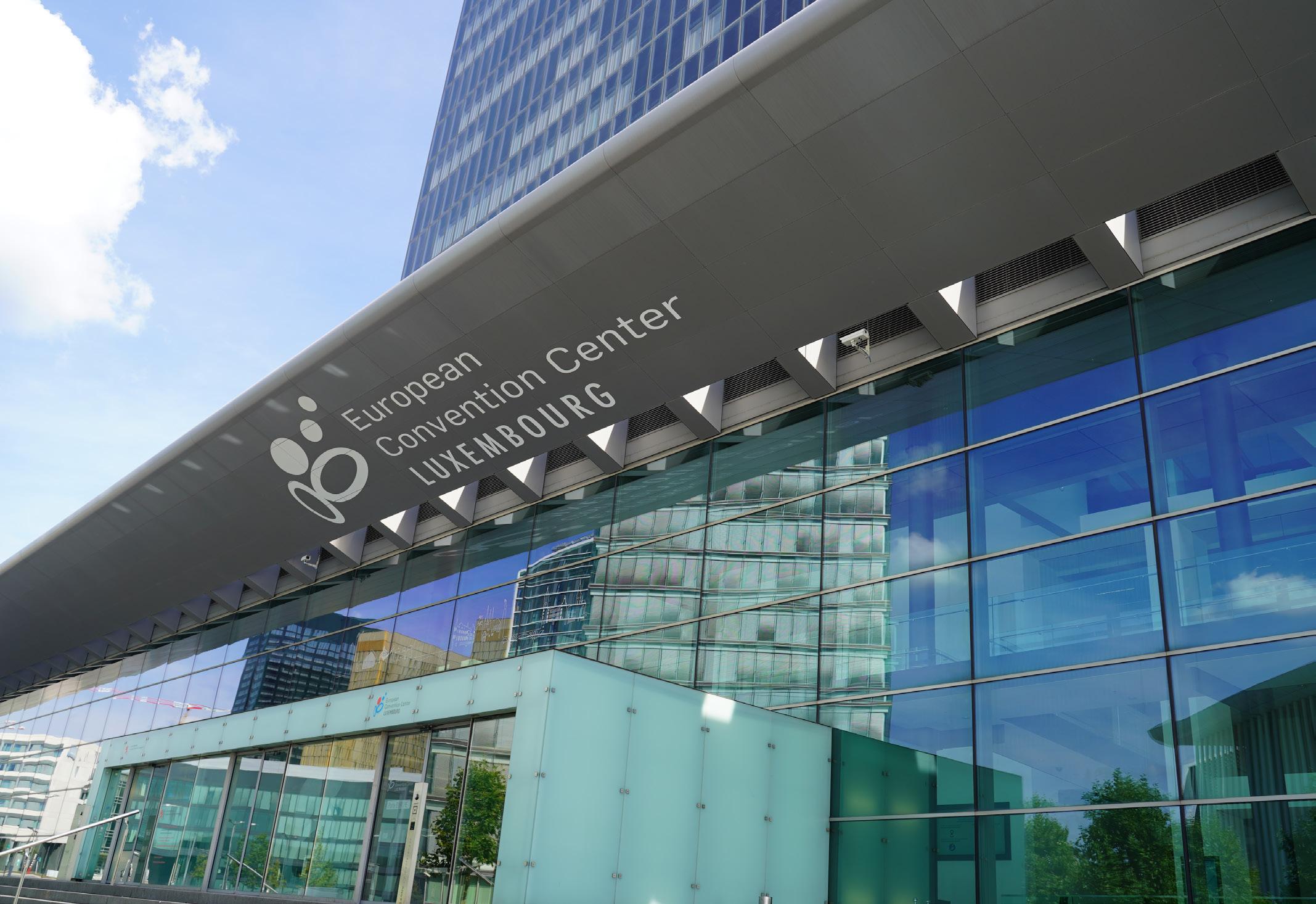
providers that form a key part of the fund value chain. The latter includes central administrations, transfer agents, depositary banks, law firms, and consultancy firms, each providing indispensable services to our industry.
The main mission of our association is to lead industry efforts and provide solutions to our members, promoting Luxembourg as the most attractive fund centre. Derived from this main mission are three key objectives; the first is to help our members capitalise on emerging industry trends and utilise the broad legal toolbox. Secondly, we strive to shape regulation by providing our views on any legislation emanating from the European authorities, as well as other global economic bodies such as the International Organisation of Securities Commissions (IOSCO).
The third objective is to encourage and further enhance the professionalism and integrity of industry players, whilst
advocating for the Luxembourg investment fund industry on the international stage, which is achieved through ALFI roadshows and conferences.
We are consistently reviewing these objectives (that are linked to our strategic vision embodied in the ALFI Ambition Paper 2025), by developing a comprehensive plan after a change in the chairmanship of the association. This ambition paper considers new trends, developments, opportunities, and challenges that will be affecting the industry going forward.
EO: Following this, what excites you most about the investment fund industry in Luxembourg currently, and what is your place in this field?
CT: Over the last 30 years, we have become the face and voice of the investment fund industry in Luxembourg. The simple fact that we exist and continue to grow demonstrates the extent to which we play a relevant role as the main interlocutor between the industry and public authorities. These include the Ministry of Finance, the regulator, and other major public stakeholders. Consequently, I believe our positioning has certainly helped us grow to a prominent role in the European industry.
ALFI’s impact and international reach is also supported by our roadshows that we have been organising for over 20 years in markets around the world in which our members distribute their products and offer their services. Our very first roadshow was held back in 2005 in London, and from there more were added each year. Last year, we organised a total of 52 roadshows, conferences, and expert briefings.
At a national level, we run approximately 200 working groups in which members contribute to our advocacy
work on existing and forthcoming regulation as well as develop guidelines and best practices on topical subject matters. Therefore, as an open forum of discussion, the association creates a fruitful ecosystem of experts and practitioners.
EO: What are the biggest challenges currently facing ALFI?
CT: The challenges facing the association are the same ones affecting the entire asset management industry. Locally, as an association, we need to remain vigilant, not rest on our laurels, and keep on striving for improvement. We constantly work on enhancing our legal toolbox, which comprises the investment vehicles and legal structures most relevant to our clients and investors. In addition, we monitor developments in key distribution markets, so that we can effectively support our membership in their business activities.
Most importantly, we need to ensure the competitiveness of our industry, given its economic impact for the country.
EO: What makes Luxembourg the best place for international investment?
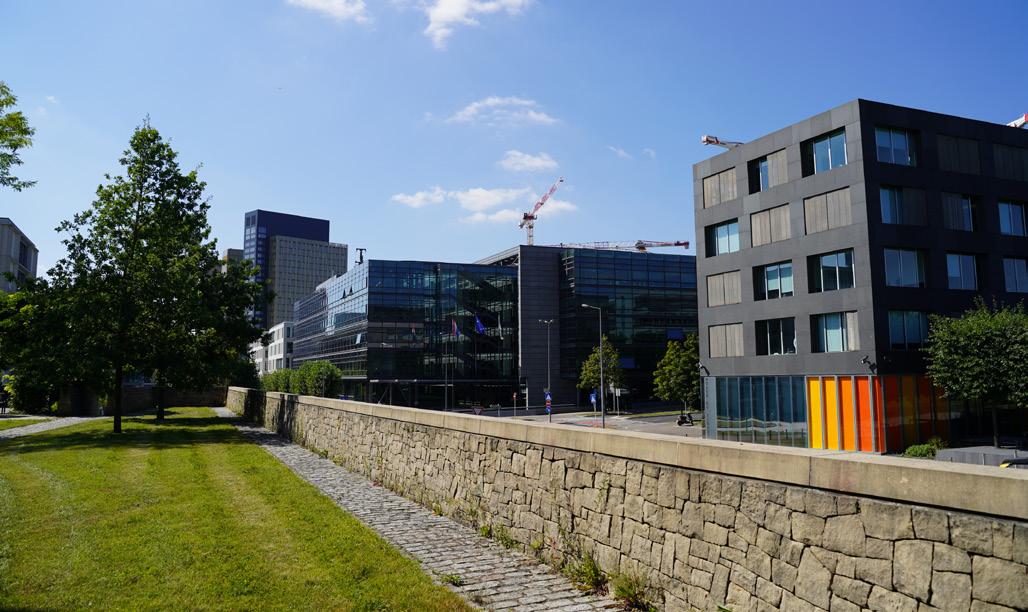
CT: The success that Luxembourg has achieved has not been built overnight; it took years to develop. Historically, we gained a competitive advantage due to the early

JTC is FTSE 250 listed company with over 35 years’ experience in providing solutions to complex corporate structures, funds and private clients.

We have grown our global footprint to 32 offices in 21 jurisdictions, focusing more recently on our expansion in the US. Over the past three years, we have made seven acquisitions in the Institutional Client Services division, which have not only enhanced our scale, but more importantly, built on the depth and breadth of our services.
We operate around the simple but effective principle that if our people have a stake in the business, they will do a better job for our clients. This commitment to Shared Ownership continues today and remains at the very heart of our culture for our 1500 people.
JTC opened an office in Luxembourg in 2009 to provide a European centre for fund and corporate services. We offer fund administration, corporate and real estate services, specialising in incorporation, domiciliation, fund administration and accounting of AIFs unregulated funds, securitisation structures and SPVs.
The Luxembourg team are multi-lingual, with vast experience and understanding of corporate and fund structuring and regulation within Europe, enabling us to effectively service the European private equity, real assets and hedge fund community.
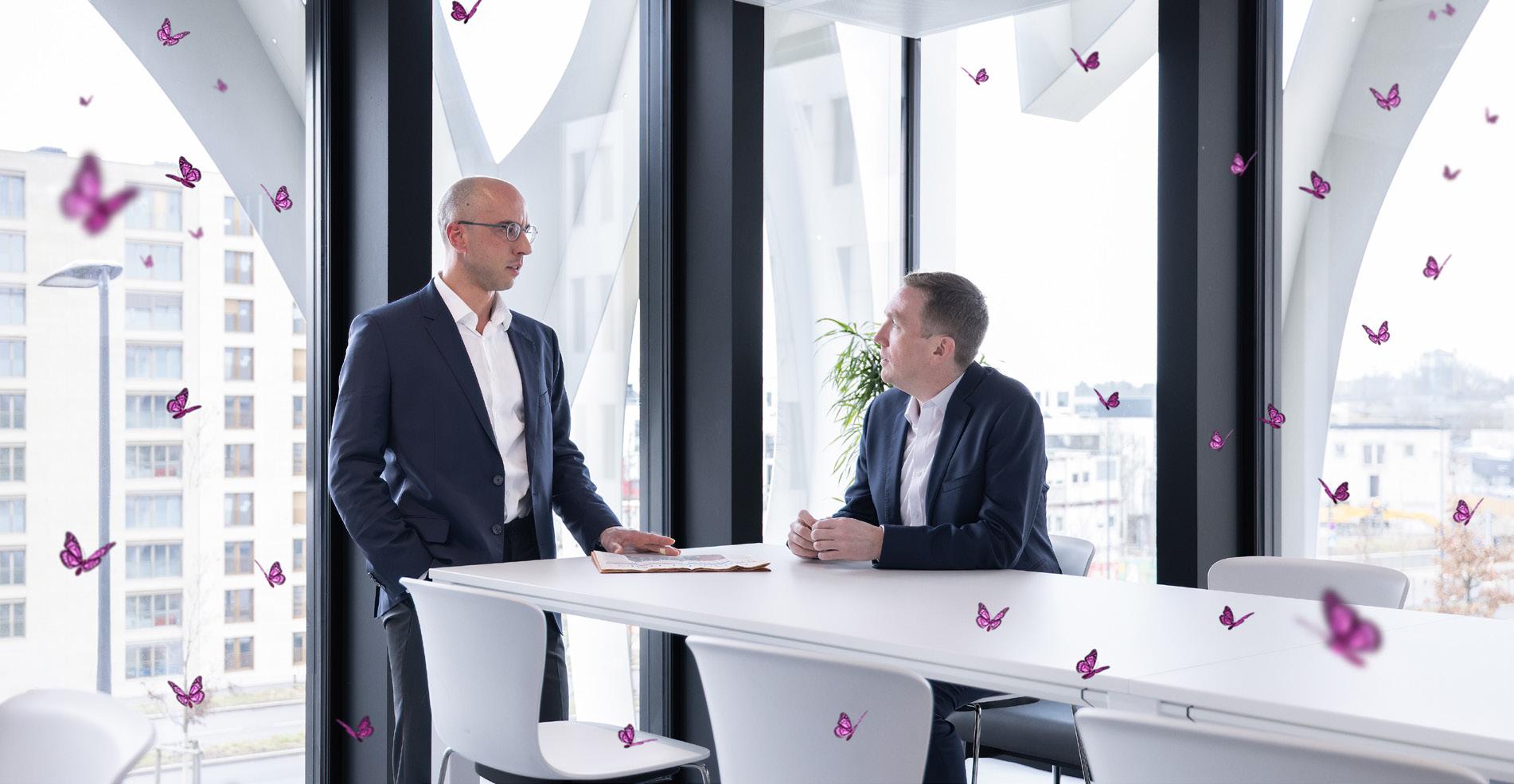
In the face of challenging macroeconomic conditions marked by high inflation and soaring interest rates, the role of JTC with its global footprint, becomes indispensable for alternative investment funds. With inflation eroding the purchasing power and elevated interest rates affecting the liquidity landscape, fund clients require agile strategies to protect and grow their investments.
Beyond purely fund administration, the value addition from JTC lies in its multi-faceted approach. Specialised reporting, tailored to these tumultuous times, ensures clients are always informed, while rigorous operational due diligence minimises risks and uncovers potential growth areas. Efficient cash management, combined with JTC’s commitment to operational efficiency, guarantees optimised returns and cost savings in an environment where every basis point counts. Moreover, with regulatory landscapes constantly shifting during such periods, JTC’s deep-rooted regulatory expertise ensures funds remain compliant, while its proficiency in foreign market strategies offers diversification benefits. Ultimately, JTC’s continuous emphasis on education and expertise positions it as a beacon, guiding funds through the macroeconomic turmoil, ensuring they not only survive but thrive.
Ahead of AIFMD2’s introduction, fund managers have been grappling with a multitude of concerns. Initially, there was apprehension about potential EU-wide restrictions on delegation, a foundational practice where they outsource specific tasks to third-party managers in other countries. This unease was heightened by speculations that the EU might set restrictive caps on the extent of delegation, potentially hemming in fund managers’ operational flexibility and their global outreach strategies.
As the negotiations unfolded, several new sticking points emerged. Delegation remained a focal concern, especially with the European Parliament (EP) resisting the requirement for fund managers to report both the assets under management and the proportion of those assets under delegation. Additionally, the EP is advocating for a definitive list of information required from fund managers seeking authorisation, rather than an open-ended one.
Loan originating funds have also been a contentious topic. While the EP is inclined to define such funds as those primarily focusing on loan origination, this narrow definition hasn’t found favour with the Council. Additionally, differences have arisen about changing the method of calculating leverage, although there’s potential agreement on introducing a cap for closedended funds.
Another debate centres on the inclusion of a reference to a depositary passport, with the Council favouring its exclusion. Lastly, the question of undue costs has become prominent, with the EP pushing to align regulations with the Commission’s Retail Investment Strategy, which could reshape reporting provisions and give ESMA the authority to determine when costs are deemed excessive.
These concerns, combined with disagreements among the EU entities, paint a complex picture of the potential regulatory challenges fund managers might face with the introduction of AIFMD.
The EP’s proposal includes specific provisions relating to liquidity risk management. It includes provisions enabling the competent authorities to require that an AIFM activates or deactivates a relevant liquidity risk management, remarkably a power that is expressed to extend to cover non- EU AIFMs. There are still some debates whether ESMA guidelines or regulatory technical standards explaining the characteristic and the selection of the liquidity risk management tool should be implemented.
The short answer is very important.
This applies to both JTC Group, the FTSE 250 company and the businesses within its 21 operating jurisdictions, as well as our service offering to clients globally.
Our culture of Shared Ownership has been at the heart of the Group for over 25 years and naturally drives a long-term, sustainable outlook as every employee is an owner of the business.

In the past two years, JTC has appointed its first Chief Sustainability Officer, Wendy Holley, and in 2022 reported for the first time under TCFD and for the second time under the SASB framework. We remain a Carbon Neutral+ organisation and now also report to the Carbon Disclosure Project (CDP). For our clients, we have launched Sustainability Services to enable firms to develop their own ESG strategies and regulatory process (including adhering to frameworks like SFDR and UNPRI), training for staff, and delivering carbon support.
We are ideally placed to support our clients achieve their own sustainability journey and particularly to ensure they are prepared for, and compliant with, the rapidly evolving array of sustainability standards and regulation.
As a highly regulated and listed company, good governance is the foundation of our operations and service offering so we are proud to ‘walk the talk’. We believe that our ESG services and the value we offer clients is enhanced by the standards
to which we are held by and by having a clear sustainability framework and roadmap.
We have a detailed roadmap at a company level that addresses ESG and sustainability pillars. Among the projects we are currently participating in:
• TCFD disclosures
• UNPRI signatory
• Voluntary reporting under Carbon Disclosure Project (CDP) and Sustainability Accounting Standards Board (SASB)
• A certified Carbon Neutral+ organisation and commitment to achieve Net Zero by 2030
• 100% of employees are owners of the business through our innovative shared ownership model (a Harvard Business School case study)
• A developing diversity, equality, and inclusion (DEI) program connected to our longstanding JTC Academy (learning), JTC Wellbeing, and JTC Gateway (geographic mobility) efforts
• Significant community and charity participation from our 32 locations across 20 jurisdictions globally
In Luxembourg specifically, our environmental, social and governance participation focus on local initiatives, while supporting our Group efforts.
JTC Luxembourg have been recognised for their inspiring sustainability efforts by SDK on behalf of the State of Luxembourg and Minister of Environment, by receiving an environment label and award to mark their successful recycling processes within our Bijou office.
This commendation was in line with the ISO 14024 Type 1 environmental labelling programme, which sets out the standards for recognising a company’s sustainable achievements.
Our Luxembourg team are also proud to sponsor the national cricket teams for both men and women, while we also support the T71 Diddeleng women’s basketball team with their EuroCup aspirations. Uniquely in the jurisdiction, we hold an annual Spring celebration of Luxembourg local food and culture.
Vincent van den Brink – Commercial Director +352 2634 3656 Vincent.vandenBrink@jtcgroup.comtransposition of European directives into national law. Other valuable reasons why Luxembourg is the best place for international investment include our diversified ecosystem, as well as a multicultural and multilingual environment.
Furthermore, Luxembourg is continuously developing its legal toolbox. Recent successful examples of this include the reserve alternative investment fund (RAIF) and the limited partnership structure, which specifically cater for the needs of alternative asset managers.

As a country, we enjoy having fiscal, social, and political stability. As such, we welcome international investors seeking to set up a base in and operate out of Luxembourg in a professional and sound regulatory environment. Finally, Luxembourg ranks high in terms of security, quality of life, and is one of the best countries in the world for attracting talent.
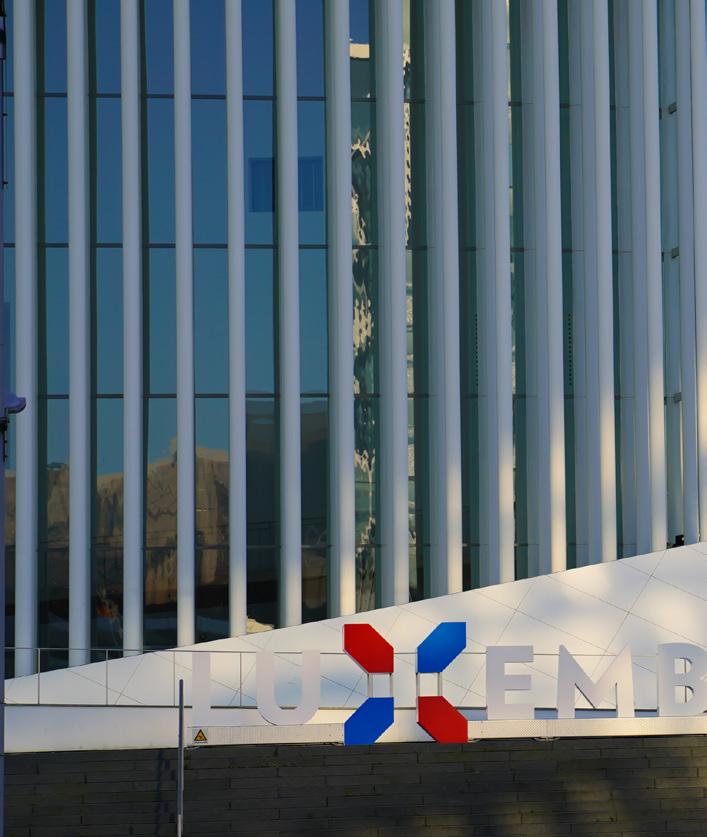
EO: What trends are currently transforming the asset management and investment sector and how are you responding to them?
CT: Transformation occurs through a constantly evolving regulatory environment, representing both challenges and opportunities.
The challenge is to accurately manage the increased workload by ensuring calibrated and proportionate regulation.
Sustainability in finance is a crucial topic, as the asset management industry can be a significant contributor in helping to transition to a greater climate-friendly global economy, and act as a key player in allocating resources to sustainable businesses as well as cultivating growth in the green economy.
Another promising opportunity can also be found in the retailisation or democratisation of private assets, as it is more commonly known. This change represents a significant development not only for Luxembourg, but the European industry as a whole, and opens up private assets in an adequate framework for investors who wish to allocate part of their savings into longterm projects.
“THE MAIN MISSION OF OUR ASSOCIATION IS TO LEAD INDUSTRY EFFORTS TO MAKE LUXEMBOURG THE MOST THE MOST ATTRACTIVE INTERNATIONAL CENTRE FOR INVESTMENT FUNDS”
– CAMILLE THOMMES, DIRECTOR GENERAL, ASSOCIATION OF THE LUXEMBOURG FUND INDUSTRY
Going forward, the increasing pressure on margins and costs will further drive consolidation in the industry.
EO: How do you see ALFI and the asset management and investment industry developing over the next five years, and how will you navigate these changes?

CT: As an association, we continuously need to demonstrate our relevance through our daily work, by supporting our members in providing investors with investment solutions and helping them achieve their long-term goals.
Secondly, the financial sector has an important role to play in the transition to a more sustainable global economy and in achieving our net zero ambitions. The general interest of both institutional and retail investors in sustainable products is clear and growing. It


is up to the collective management industry to step up the educational work in the interest of supporting the transition through sustainable investments.

We support and encourage financial education initiatives to raise the general public’s awareness of the need to increase knowledge on personal finance and the economy in general.
An important focus of ALFI is to further raise awareness of the need for increased diversity across the financial services industry. ALFI commits to respecting and promoting the principles of non-discrimination, pluralism, and developing diversity in our sector.
Overall, even though we operate in a volatile economic environment, I am convinced that the asset management industry can provide important advice and financial solutions to end investors and manage their long-term savings adequately.

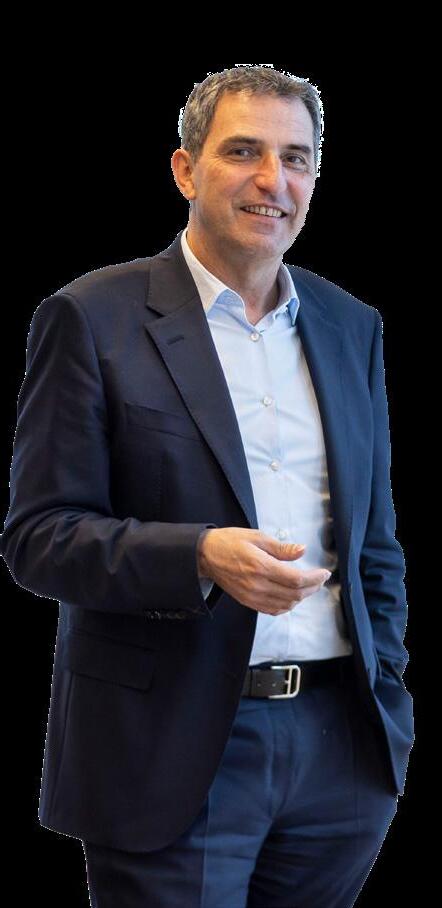
The Luxembourg branch of CACEIS is one of the asset servicing banking group’s operational hubs for Europe, in a country that has become an important international financial centre
What makes CACEIS one of the world’s leading asset servicing providers for institutional and corporate clients?
CACEIS has an extensive international network and expertise in a wide array of products and services that are an essential part of the asset servicing business. Our ability to support clients wherever they operate, and provide a ‘onestop shop’ with modular services tailored to their business needs, is key. The above, in combination with solid financial backing from our two
shareholders, Crédit Agricole and Santander, and our ‘partnership’ approach to client relationships helps us maintain our position as a leading player in the market.
CACEIS has had a presence in Luxembourg for more than 25 years. What role does the Luxembourg branch play within CACEIS?
CACEIS in Luxembourg acts as an international hub for the CACEIS group’s global business, and our office in the Grand
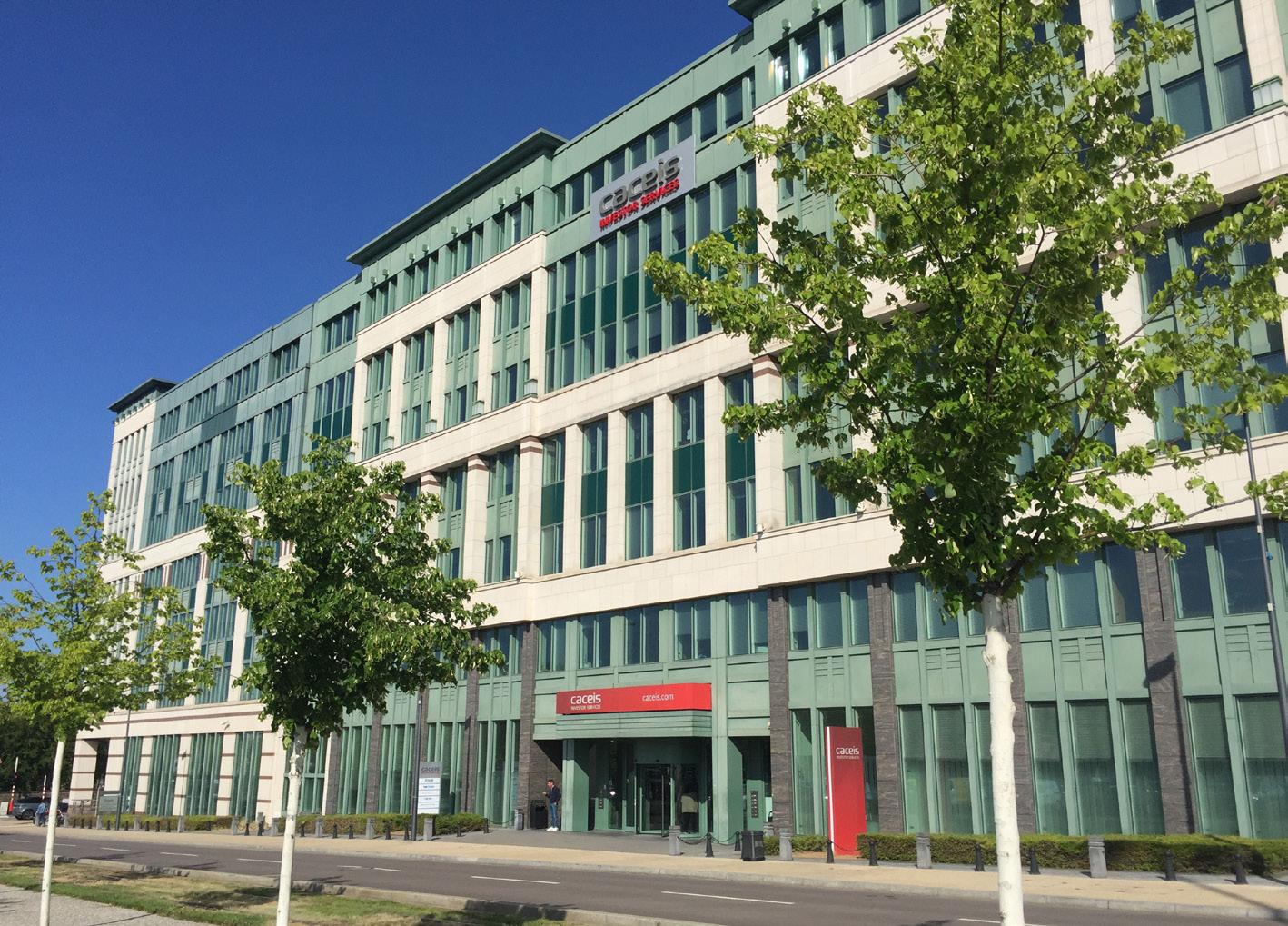 Philippe Bourgues, Country Managing Director, CACEIS Bank, Luxembourg Branch
Philippe Bourgues, Country Managing Director, CACEIS Bank, Luxembourg Branch
Duchy has grown in importance in line with Luxembourg’s everstrengthening position as a European centre for funds. Many clients from the ‘Anglosphere’ benefit from Luxembourg’s expertise as a distribution hub for their international funds, as range rationalisation remains a growing trend around the world. Our Luxembourg office is able to provide expert, multilingual support and has a full understanding of countries’ varied business practices to support clients’ efforts to seek new investors in global markets.
In the last few decades, how has Luxembourg become an important financial centre, particularly in asset servicing?
Firstly, Luxembourg’s proactive and business-friendly government provides a high level of stability which is reflected in its AAA rating (Fitch). The multicultural population lends itself to operating as a servicing hub for international clients looking to rationalise fund ranges and distribute a single range on an efficient pan-European basis. This trend also coincides with US and EU promotors using Luxembourg, and its SICAV brand, as a springboard to access new markets and clients in Asia. ALFI, the Association of the Luxembourg Fund Industry, actively promotes Luxembourg around the world, championing its advantages, which include a financial ecosystem containing the ‘Big 4’ consultancy firms, flexible and modern investment vehicles (even US/UKstyle private equity structures), and a growing community of Fintech start-ups that are bringing further innovation to the sector.
Why has CACEIS made the Luxembourg branch an operational hub for Europe?
Clearly, a stable country at the heart of the EU, boasting a rich financial ecosystem and a pool of talented men and women from which to recruit is a key
factor. However, Luxembourg’s international reputation and specifically the global recognition of the Luxembourg SICAV brand have much to do with this. Again, range rationalisation trends, and the Grand Duchy’s cross-border distribution expertise, make it a prime jurisdiction in which to do business, and a clear choice for an operational hub for the CACEIS group.
What are the objectives of the Luxembourg branch and how consistent are they with the CACEIS Group’s overall strategy?
Throughout the CACEIS group, our aim is to assist clients in achieving their business development objectives. We understand that regulations and business practices differ from country to country and ensure we adapt to client cultures and explain the cultural and market differences to our clients aiming to distribute their products on a crossborder basis. While the cultural elements may differ, the core concept of adapting to the client’s needs is consistent throughout the CACEIS group. Two other groupwide concepts are ‘embracing innovation’ to ensure we offer clients cutting-edge and efficient services; and ‘digitalisation’ to raise straight-through-processing rates, free up staff to work on higher value tasks, and further improve our costto-income ratio. Finally, something that is not only consistent at group level but even rises to shareholder level is our approach to sustainability, captured in the shared motto, “acting every day in the interests of our clients and of society”. We take sustainability seriously, and have established a ‘Sustainability Centre’ that governs our strategy, practices and supplier relationships throughout the group.
How prepared is the Luxembourg branch to continue to support the development of its clients and strengthen its position as the preferred partner for Luxembourg funds?
We feel we are very well prepared to support our clients and strengthen our position in Luxembourg. We have the expert staff, the cuttingedge services, the investment programme that enables us to invest in new product development, the partnerships with leading Fintechs via our Connect Store, and the partnership-style business relationships we enjoy with a highquality clientele. Finally, we have the commitment and the ambition to keep on growing our business by providing effective support across the board.
Organic growth is not the only development strategy we pursue, and CACEIS has been actively acquiring or partnering with strategic businesses since day one. Our latest acquisition, the European asset servicing activities of Royal Bank of Canada (RBC), is a major one that will transform the CACEIS group and CACEIS in Luxembourg. As of early July, some 850 staff in Esch-Belval joined our group, and over the coming year, the two entities will become one and launch CACEIS into an even stronger position in Luxembourg. By leveraging our combined expertise, we will maintain our broad offer of value-added services to all of our clients and support their continued development in Luxembourg. We are looking forward to taking on the challenges and opportunities this wide-ranging acquisition brings, and to welcoming and forming close relationships with our new colleagues from the RBC deal. For CACEIS in Luxembourg, our staff, and the clients we service, the future looks bright.
CONTACT US
CACEIS-Comm-Lux@caceis.com www.caceis.com

